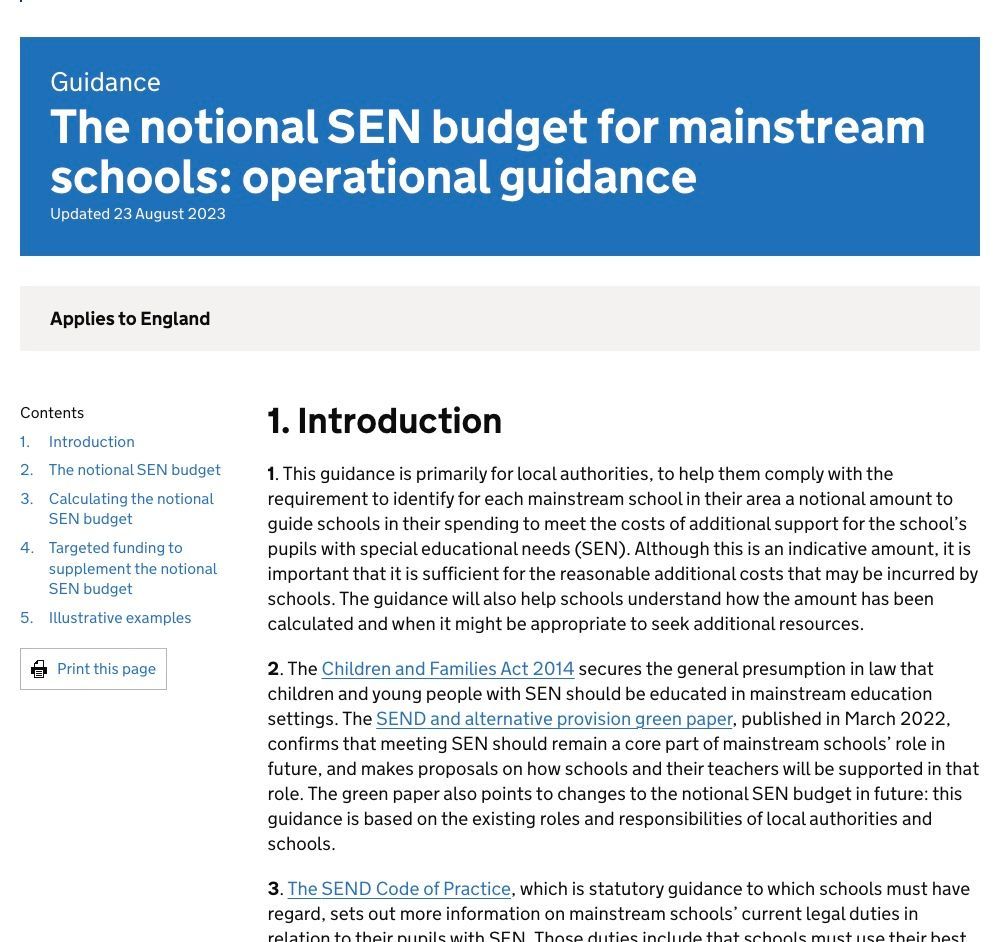Reasonable Adjusments
This information is about Reasonable Adjustments for SEN students at school.

What are Reasonable Adjustments?
Reasonable adjustments are the changes that are made to a child’s school life, so that they’re not at a disadvantage compared to others.
The term reasonable adjustment is often used in a general way to apply to all children with SEND. But in law, it’s specifically about the changes made to support a disabled child.
The term disability is quite a broad and some children and young people who have special educational needs may have a disability too.
Any reasonable adjustments required will depend on a child’s needs. They might include making changes to things like uniform and behaviour policy to meet the needs of a child, as well as the kind of support offered day to day in school.
The law about reasonable adjustments
Some children and young people who have special educational needs may also have a disability.
The Equality Act 2010 says that someone has a disability if they have:
‘A physical or mental impairment, which has a long-term and substantial adverse effect on their ability to carry out normal day to day activities’.
Long-term means it’s lasted a year or more. Substantial means it’s not minor.
Disabilities can include:
- hearing and sight impairments
- long-term physical or mental health conditions such as asthma, epilepsy, anxiety, and depression
- conditions that change, so sometimes symptoms are minor and at other times they’re more severe, such as rheumatoid arthritis, ME and Chronic Fatigue Syndrome
- conditions that affect development, such as autistic spectrum condition (ASC)
- learning disabilities
- brain injuries
The Equality Act 2010 also sets out the legal obligations that schools, early years providers, colleges and local authorities and others have towards disabled children and young people.
There are three parts to the legal duty to make reasonable adjustments. That means a school or other education provider, or the local authority must make adjustments in all three of these areas if needed.
- Provisions, criteria and practices. This is about the way in which a school operates on a daily basis, including their decisions and actions. The school uniform policy would fall within this part, for example. So, a school would need to make adjustments to this policy for pupils with an allergy to synthetic materials who need to wear cotton clothing.
- Auxiliary aids and services. This is any additional support or help for a disabled pupil, such as a piece of equipment or support from a member of staff. It would include things such as coloured overlays, pen grips, adapted PE equipment, adapted keyboards and computer software.
- Physical features. This is the physical make-up of the buildings. Schools must make their buildings accessible for disabled pupils as part of their overall planning duties.
Important points
Reasonable adjustments aren’t just for disabled children, or children with an Education, Health and Care (EHC) plan. Children and young people with SEND who are getting SEN Support can have reasonable adjustments made for them too.
A child with SEND does not need to have a diagnosis for reasonable adjustments to be made. Changes made in nursery, school and college should be based on the individual needs of the child.
Sometimes schools may need to call on specialist advice to assist with the planning of reasonable adjustments, but most reasonable adjustments consist of changes to policies and practices. Often these changes costs little or nothing and are easy to put in place.
The basis of reasonable adjustments is that they anticipate (expect) something may cause a disadvantage and make a change to prevent or limit that happening.
Making reasonable adjustments is a great way for a child, their parents and staff to work together to find solutions that can meet the child's needs. Talking to school staff about what works well at home – for example, what comforts a child and helps them to calm down will be helpful. Perhaps suggesting they offer them a soft toy to cuddle or a chance to step out of class when things aren’t going well can show a child that they’re understood.
There are many creative and inspiring examples of reasonable adjustments being made by schools across the country. Often schools are not aware that what they're doing counts as a reasonable adjustment. They are just doing what they think needs to be done to ensure that all children can join in all the benefits of the school with their peers. This approach means a school is much less likely to discriminate against a disabled pupil.
Legal Duty
The legal duty to make reasonable adjustments means a school should take positive steps to make sure that disabled pupils can:
- take part fully in education
- enjoy the other benefits, facilities and services that the school provides for pupils, including school trips
Many reasonable adjustments cost little or nothing and instead mean a change in practice rather than expensive pieces of equipment or extra staff.
A school’s duty to make reasonable adjustments is an anticipatory one. Anticipatory means that schools need to think in advance about what a disabled child might need, and what changes may need to be made for them.
In making decisions about reasonable adjustments, the best place to start is with the child or young person themselves. By listening to what a child is saying and checking you have understood, will help you to find creative solutions.
A child's views, wishes and feelings are important. Sometimes it may not always be possible to do what a child or young person feels is right for them, but it’s important for them to know why it’s not possible, and what can be done instead.
What does reasonable mean
‘Reasonable’ isn’t defined in law. So, there is no clear line that says what would be considered reasonable and what wouldn’t. What it comes down to is individually deciding whether something is reasonable for a school or local authority to do, or not.
For small things, that’s unlikely to be an issue. Things like using a laptop to record work, or having a quiet place to go during break are straightforward. For bigger or more costly adjustments, some discussion will be needed. Schools and local authorities can say no.
Where a school or local authority decides that there are no reasonable steps that it can take, it should say why.
It’s not possible to say what would be reasonable in any specific situation, but there are some factors that will be thought about when any major decision is made.
These include:
- the resources of the school
- if the adjustment was made, how much difference would it make to the child
- how practical it is to make the adjustment
- health and safety requirements
- how the adjustment might affect other pupils
- the financial and other costs of making the adjustment

